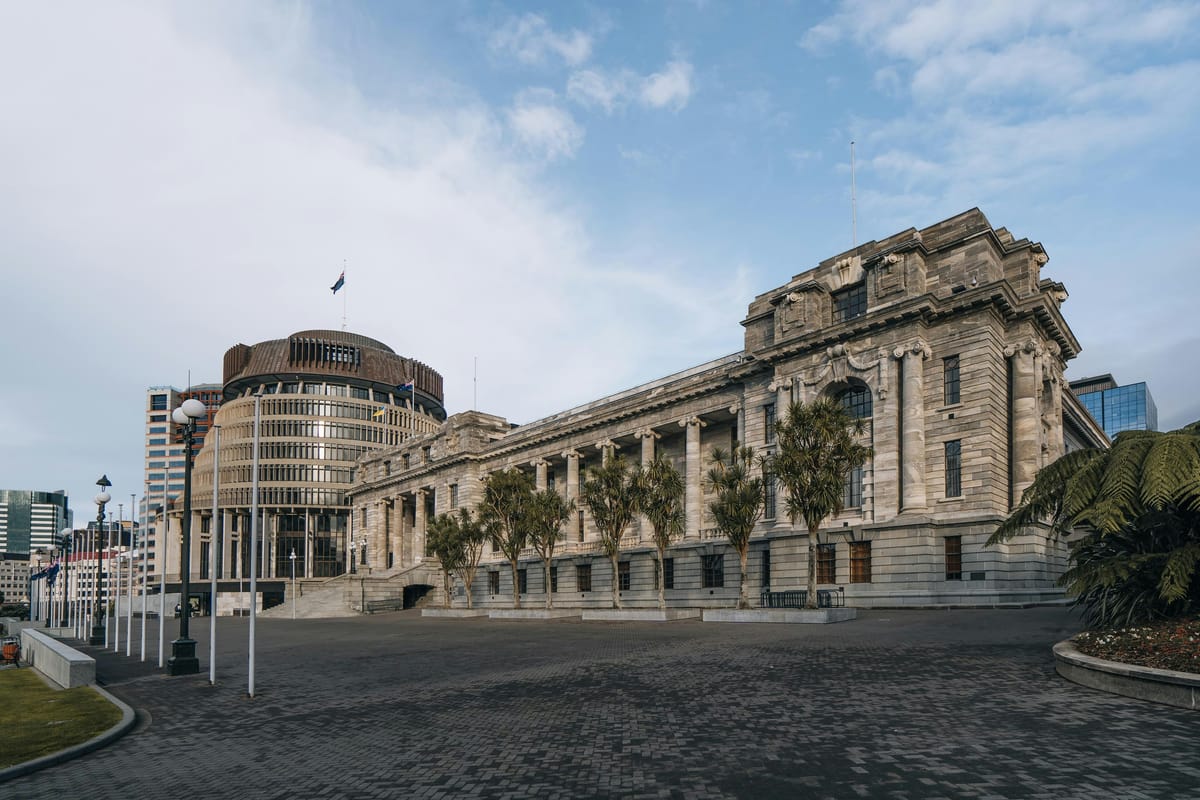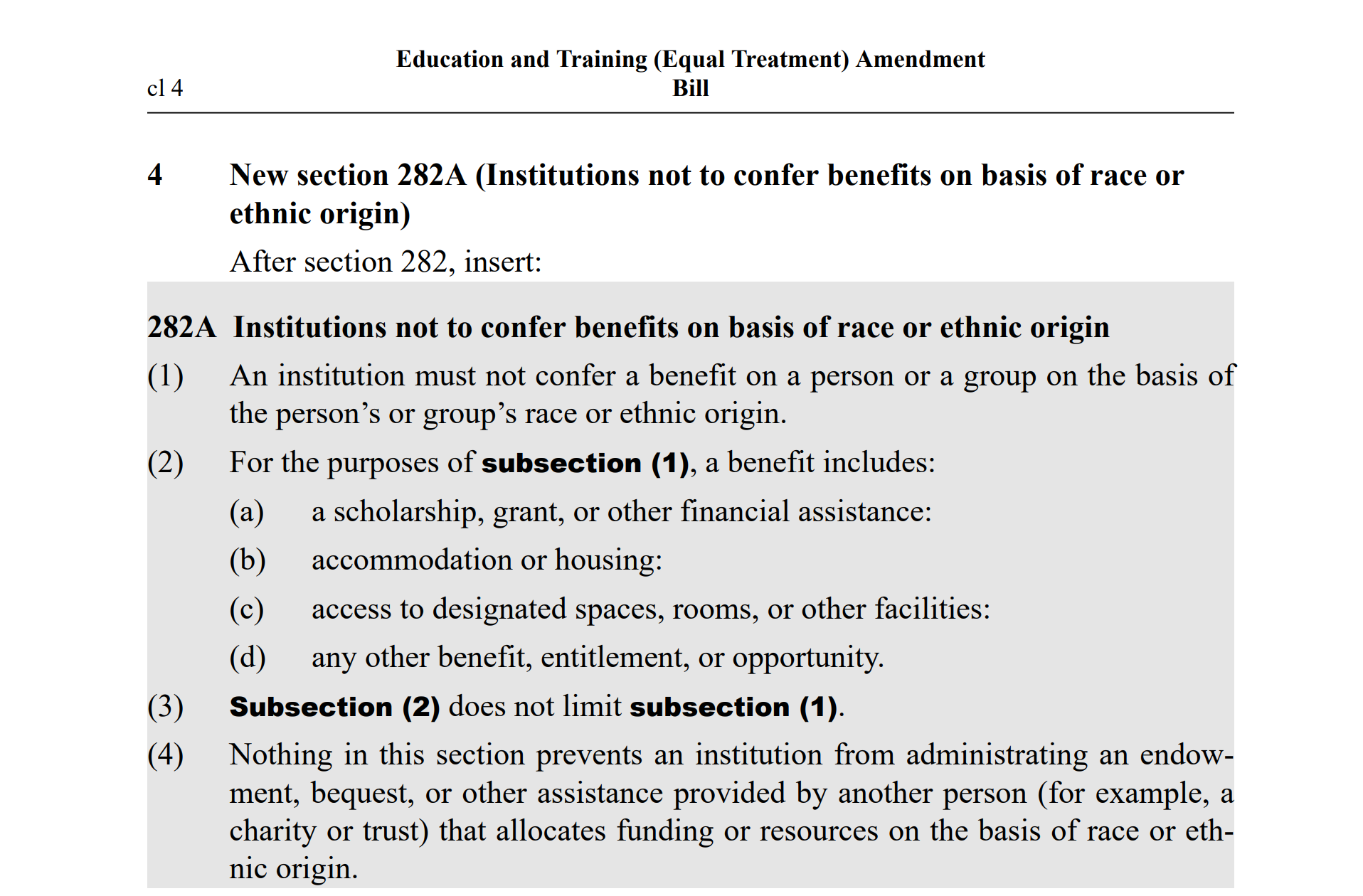ACT MP Targets Universities in New Proposed Bill
An overview of the new bill proposed by ACT MP Parmjeet Parmar.

A bill put forward by an ACT Party MP on March 21st 2025 targets university services that are ‘based on race.’ The bill titled ‘Education and Training (Equal Treatment) Amendment Bill, was put forward by ACT's tertiary education spokesperson Parmjeet Parmar, and is supported by National as part of the coalition agreement made by National, ACT and New Zealand first to form the current government.
The amendment proposed, is the introduction of new section 282A which states that an institution (such as universities) should not give benefits to a person on the basis of their race or origin. It then clarifies that this would include things such as scholarships or any other type of financial assistance, access to designated spaces, accommodation, or any other opportunity.
This bill comes after Donald Trump's scrapping of DEI (Diversity, Equity and Inclusion) policies in the United States.

As identified by spokespeople for Labour, Greens and Te Pāti Māori, this bill almost exclusively targets services put in place for Māori and Pasifika students, and also comes after the University of Auckland was targeted by National, ACT, and New Zealand First twice in the past year. In March of 2024, a picture of a sign for a designated study space for Māori and Pasifika students was posted online, which stirred controversy, and also triggered insane comments from Winston Peters who compared the existence of the space to the activities of the Ku Klux Klan (KKK). Early this year, the mandatory WTR 100 Waipapa Taumata Rau course that focuses on New Zealand history, the Treaty of Waitangi and Māori culture and practices, also had ACT MP's such as Parmjeet Parmar calling for it to be scrapped.
The new proposed bill will only be put forward to the House if it gathers enough attention from fellow MP's, or if it's drawn at random from the biscuit tin of member's bills.
Craccum contacted the different political groups active on campus for their statements on the proposed bill.
Up until now, no response has been given by Young National, Young ACT, and Young New Zealand First who were contacted for statements on the bill. Craccum will update this article should they wish to give a statement.
The Māori Student Officer informed us that due to the significance of this matter, they are taking a private approach in tackling the issue of the proposed bill for the safety and wellbeing of their students. Craccum supports this decision.
The statements received from the remaining groups contacted are below.
Young Greens
“The UoA Greens adamantly oppose this bill. We believe it is a threat to the progress made in addressing the inequities within our tertiary education system. Māori and Pasifika students continue to be underrepresented within both undergraduate and postgraduate study.
Targeted scholarships, support services, and inclusive spaces exist not to confer an advantage but to mitigate systemic barriers and foster genuine equity within a knowingly inequitable institution. It is a short-sighted, divisive move that targets our most vulnerable and will only deepen systemic inequality.
The Waipapa Taumata Rau course is vital to understanding our history and culture here in Aotearoa. It is super important for everyone, including international students, to understand, especially when the course is built around your area of study. Removing these initiatives under the guise of fairness is disingenuous and dangerous. This bill must be scrapped!”
Young Labour
“Princes Street Labour firmly believes that education is a human right - and that access to education must be equitable to everyone. Member of Parliament, Parmjeet Parmar's proposed Members Bill threatens this.
Instead it mirrors the divisive sentiment behind David Seymour’s now defeated Treaty Principles Bill, which aims to bring division into academia - an already challenging space for those who face systemic barriers. However, it is a space where people continue to work together to solve issues, not to cause more.
Parmar expresses concerns over resources like scholarships, accomodation, housing, and on-campus spaces being allocated based on ethnicity. But we know these resources exist to support some of our most vulnerable students - and they work. They create lasting, positive changes on students’ experiences, academic results, and future opportunities. These initiatives exist, not to take away from others; but to lift up those who are historically underserved. As a young Cook Island wāhine who recently received a scholarship designated for Cook Island women in academia, I find this framing particularly disheartening. I know firsthand how life-changing these opportunities can be. Our wider Young Labour team, across the motu, wholeheartedly oppose this attack on academic equity.
Last year, Princes Street Labour stood with students in the face of Seymour’s comments about cultural spaces on campus. The message was clear then, and it remains clear now: these are not segregated spaces—they’re safe, welcoming environments where students can connect with their culture and community, build confidence, and strive toward success. Far from exclusionary, these spaces foster belonging and are open to all. An overwhelming majority of students, academics and staff agree with this.
In regards to the WTR course, it is faculty specific and designed to teach students about different knowledge systems and looking at NZ history, of which Te Tiriti o Waitangi is undeniably a part of. Seymour's attacks on the University's actions to create a course like this are only reflective of his own views. Students are not moving overseas because of this course, they’re leaving because the cost of living is too high. Suggesting otherwise is simply misleading. No student pays extra for the course. In fact, most feedback has been overwhelmingly positive, with students reporting valuable insights and personal growth.
Princes Street Labour supports holistic teaching of Aotearoa New Zealand history, mutual respect for all cultures and worldviews, and ensuring every student has the tools they need to reach their full potential.
We refuse to accept anything less.”





